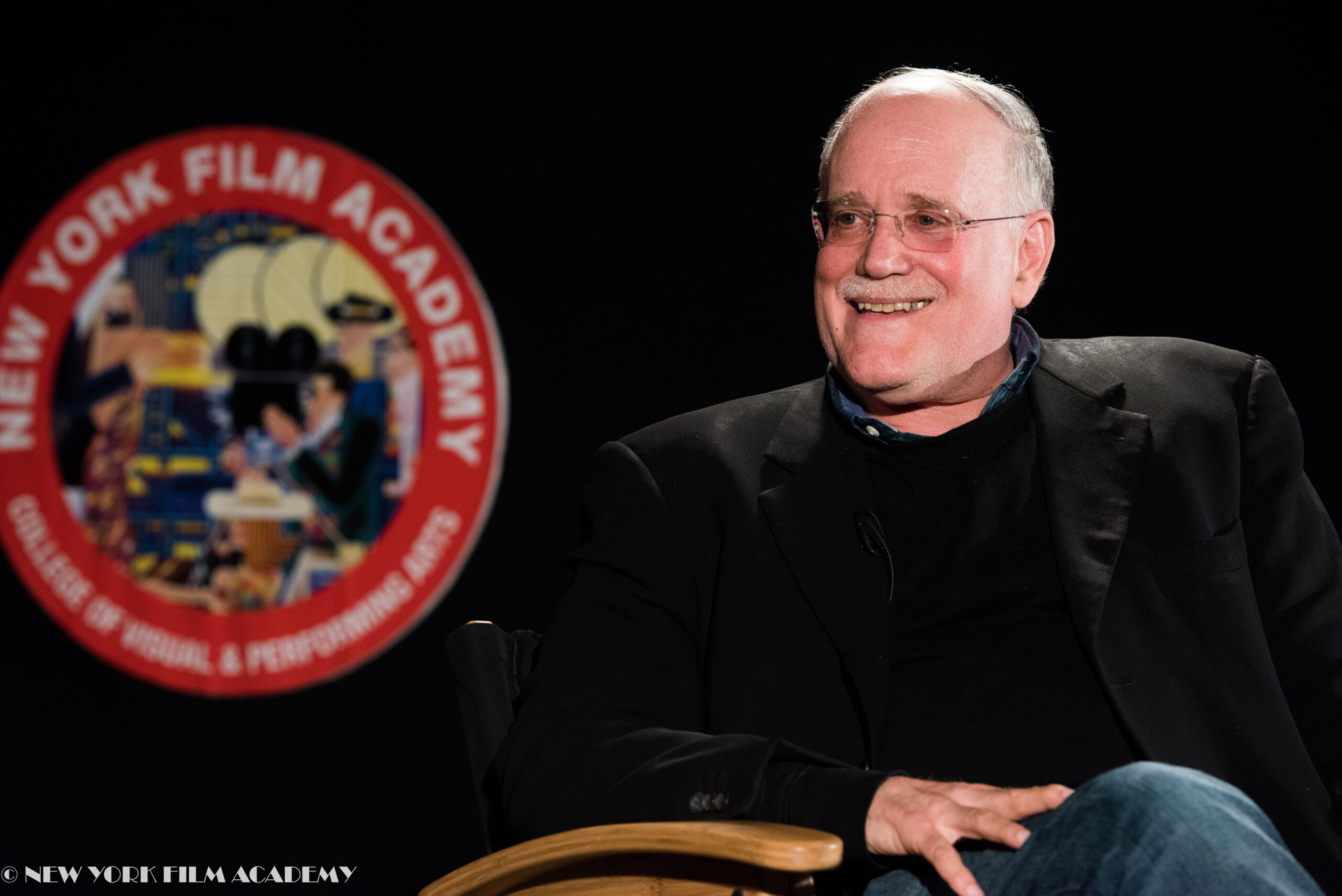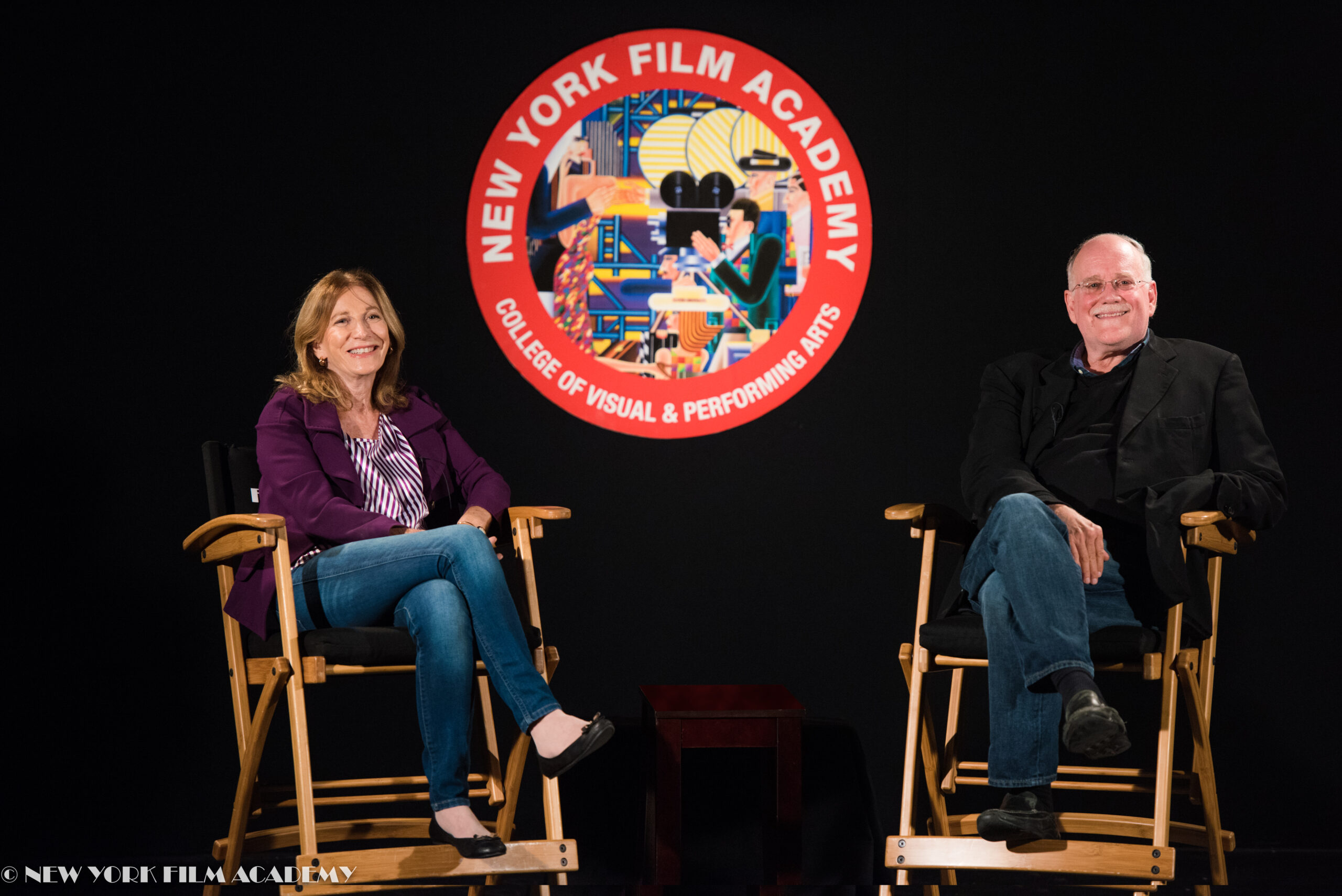The New York Film Academy (NYFA) Los Angeles recently had the honor of hosting prolific producer Ted Field for a Q&A, following a screening of Jumanji: Welcome to the Jungle. NYFA Director of the Q&A Series Tova Laiter hosted the evening.
Currently the chairman and owner of Radar Pictures, Field has seen success in both film and music. In 1984, he founded Interscope Films, which produced hits like Cocktail, Bill & Ted’s Excellent Adventure, Mr. Holland’s Opus, and more. He also founded Interscope Records, an independent record label that signed emerging artists such as Dr. Dre. Eminem, Tupac, Snoop Dogg, and others. Through his current company, Field has released hits like The Last Samurai, Spring Breakers, the Riddick franchise, and The Amityville Horror.
Field’s first film was Revenge of the Nerds, and he and Laiter fondly reminisced about the movie. Field shared some of his struggles making the film, “…[it] still took me two years to get that film made. And I almost gave up. I was like, ‘This business is just too hard’ and I nearly quit, and all of a sudden … [Fox] greenlit the film.”
Field also talked about his previous career as a race car driver: “If you’re thinking at 240 miles an hour about characters in your movie, it’s time to switch careers.”
Laiter asked about the difficult things a producer has to do, including getting the rights to thought-after source material. Field dove into the topic, saying, “This business is ultimately about persuasion … you have to find a way to get to that author, tell that author how passionate you are, and how you would make it, and how you would protect his vision. Break down doors. Don’t take no for an answer … You know, the word you’ll hear most in the movie business, or the television business, is no. That’s the word. And it should not matter. By the way, you don’t get any credit for having made a lot of movies. We’ve made a lot of movies, but each one is a new series of no’s before we get a yes.”
One student asked, “How does the development process work?” Field said that the development process is different on every film, and the one thing that almost all films have in common is they’re collaborative.
“And, to me,” he added, “A producers not really a producer if he isn’t working on development — if he isn’t reading every draft, making comments on every draft … in the end, your responsibility as a producer is to make the best film possible.”
The New York Film Academy would like to thank Ted Field for taking the time to speak to our students and share his wisdom from his many years in the industry.

